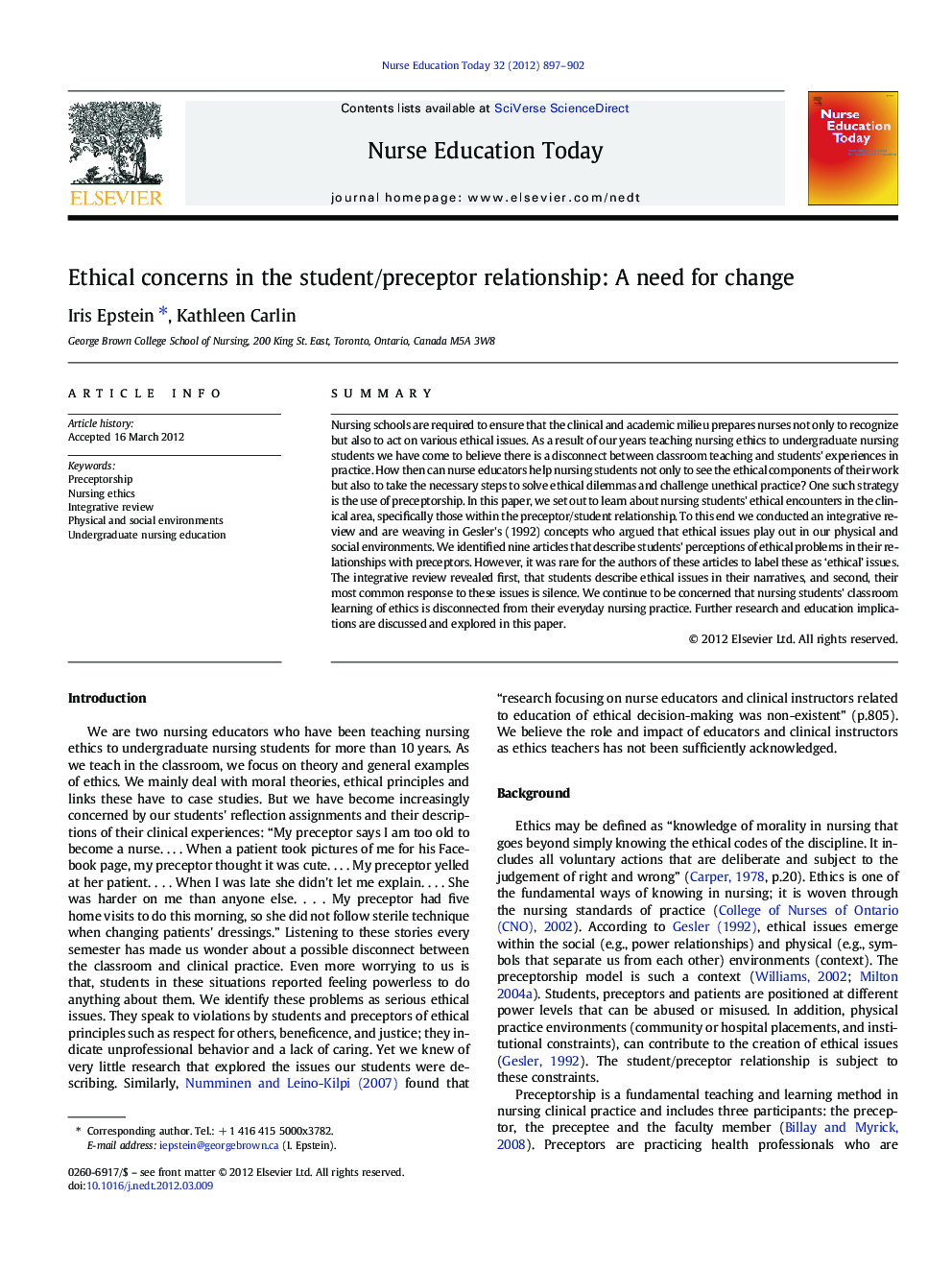| Article ID | Journal | Published Year | Pages | File Type |
|---|---|---|---|---|
| 368734 | Nurse Education Today | 2012 | 6 Pages |
SummaryNursing schools are required to ensure that the clinical and academic milieu prepares nurses not only to recognize but also to act on various ethical issues. As a result of our years teaching nursing ethics to undergraduate nursing students we have come to believe there is a disconnect between classroom teaching and students' experiences in practice. How then can nurse educators help nursing students not only to see the ethical components of their work but also to take the necessary steps to solve ethical dilemmas and challenge unethical practice? One such strategy is the use of preceptorship. In this paper, we set out to learn about nursing students' ethical encounters in the clinical area, specifically those within the preceptor/student relationship. To this end we conducted an integrative review and are weaving in Gesler's (1992) concepts who argued that ethical issues play out in our physical and social environments. We identified nine articles that describe students' perceptions of ethical problems in their relationships with preceptors. However, it was rare for the authors of these articles to label these as ‘ethical’ issues. The integrative review revealed first, that students describe ethical issues in their narratives, and second, their most common response to these issues is silence. We continue to be concerned that nursing students' classroom learning of ethics is disconnected from their everyday nursing practice. Further research and education implications are discussed and explored in this paper.
